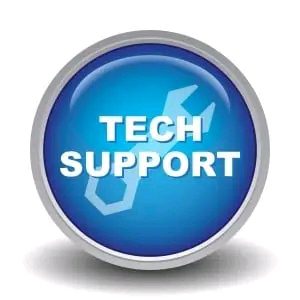IT Services || Examples || Types, and Core Functions

In today’s technologically driven world, IT services play a pivotal role in businesses of all sizes.
Whether it’s managing networks, providing technical support, or developing software solutions, IT services enable organizations to optimize their operations and achieve their goals.
In this article will delve into the concept of IT services, highlight examples of commonly offered services, explore the different types of IT services, and discuss the core functions of the IT department.
What are the examples of IT Services?
An IT service refers to the application of technical and business expertise to deliver technology-related solutions.
Examples of IT services can vary widely, but here are a few common ones:
1. Network Management
This IT service involves the setup, configuration, and maintenance of computer networks within an organization. It includes tasks such as managing network security, ensuring reliable connectivity, and monitoring network performance.
2. Help Desk Support
Help desk services provide end-users with technical assistance and troubleshooting for various IT issues. This may include resolving software problems, assisting with hardware installations, and addressing user inquiries.
3. Software Development
IT service providers may offer software development services, which involve creating customized applications or software solutions tailored to specific business needs. These services can range from designing and developing a new software system to enhancing and maintaining existing applications.
What are the Three IT Services?
IT services can be broadly classified into three categories:
1. Infrastructure Services
These services focus on the foundational elements of an organization’s IT infrastructure. Examples include network management, server administration, cloud computing, and data centre operations.
2. Technical Support Services
This category encompasses services that assist end-users in resolving technical issues and ensuring the smooth operation of IT systems. Help desk support, troubleshooting, and maintenance fall under this umbrella.
3. Application Services
Application services revolve around the development, deployment, and management of software applications. This can include application development, customization, integration, and ongoing support.
What is the IT Department?
The IT department is a crucial component of an organization responsible for managing the technology infrastructure and providing IT services to internal users.
Its primary objective is to ensure the efficient and secure functioning of IT systems, as well as to support the technology needs of employees or customers.
The IT department’s responsibilities typically include network administration, system maintenance, user support, cybersecurity, software development, and project management.
It serves as the central hub for all technology-related matters within an organization.
What are Core IT Services?
Core IT services are the fundamental functions that an IT department offers to support the technology requirements of an organization.
These services may vary depending on the nature of the business, but they commonly include:
1. Network Infrastructure
Designing, implementing, and maintaining the organization’s network infrastructure to ensure reliable connectivity and secure data transfer.
2. System Administration
Managing servers, databases, and operating systems to ensure their optimal performance, security, and availability.
3. User Support
Providing technical assistance and troubleshooting for hardware and software issues to help end-users effectively utilize IT resources.
4. Data Security
Implementing measures to safeguard sensitive data, including network security, access controls, encryption, and regular data backups.
FAQs
What are Managed IT Services?
Managed IT services refer to outsourcing IT responsibilities to a third-party provider. This can include network monitoring, cybersecurity, data backup, and support, allowing businesses to focus on their core operations.
What is the difference between IT services and IT consulting?
IT services involve the actual implementation and management of technology solutions, while IT consulting focuses on providing expert advice, strategic planning, and guidance for IT-related decision-making.
Are IT services only for large businesses?
No, IT services are not limited to large businesses. Organizations of all sizes can benefit from IT services, as they can tailor solutions to meet specific needs and budgets.
How can IT services benefit my business?
IT services can enhance operational efficiency, improve cybersecurity, increase productivity, provide technical expertise, ensure system stability, and enable businesses to focus on their core competencies.
Also Read: Role of an Information Technology Specialist




